*** Proof of Product ***
Exploring the Essential Features of “Julie Matthews – PRIMARY BioIndividual Nutrition Training & Certification”
The field of nutrition science and therapeutic diets has expanded greatly
New evidence demonstrates that compounds found in foods, even very “healthy” foods, can cause serious reactions in certain people and even worsen conditions you’re trying to help.
Recommending a healthy whole foods diet, or even gluten-free, grain-free diet, or Paleo diet may not be enough; as they do not address the individual biochemical needs of your patient or client.
The latest nutrition science shows that many people with chronic health conditions suffer with issues relating to oxalates, salicylates, amines, histamine, glutamate, and FODMAPS, as well as poor methylation, transsulfuration and sulfation.
Practitioners are not typically aware of all these food substances, nor how to identify them, or how to customize a therapeutic diet to meeting their client’s unique needs.
If you’re not up on the latest nutrition science and how to apply it clinically, you are missing an essential piece of practicing functional nutrition. And without it, your nutrition guidance may be ineffective.
As a nutritionist, it is essential to learn
to recognize these types of food reactions in order to address
the underlying biochemical factors affecting your client’s symptoms.
Stop the guesswork, save time, and leap years ahead in knowledge & skill
→ Learn the science and practice of personalized nutrition
→ Master therapeutic diets for your client’s unique needs
♥ Get breakthrough results even with complex cases
Introducing the
Hi, I’m Julie Matthews. I’ve been working clinically with complex metabolic disorders (including ADHD, autism, anxiety) and getting stellar results using personalized nutrition since 2001. In addition to being an author and published researcher, one of my passions is teaching other practitioners how to utilize my proven methodology and get the results your patients or clients need and that you want. I’ve served thousands of families around the world and trained 800+ practitioners like you how to transform lives through the science and practice of personalized nutrition.
Julie Matthews, CNC, CNE, CBNP
Founder: BioIndividual Nutrition Institute
Personalized Nutrition is The Future…
The American Nutrition Association explained the importance of Personalized Nutrition (PN).
Personalized nutrition holds tremendous potential to improve human health.
Despite the evidence that it is core to addressing complex chronic disease…. personalized nutrition is largely absent from our healthcare culture and system
The clinical efficacy of personalized nutrition requires that practitioners are adequately trained to apply this knowledge in practice.
Our Advanced Training you will guide you t0…
Understand the science and clinical thought process behind dozens of therapeutic diets; customizing them, knowing how to implement them and avoid the pitfalls
Use cutting edge tools like our lists of “symptom clusters” and food sensitivity categories as part of personalizing the approach.
Streamline your practice and improving compliance using targeted questionnaires, symptoms lists, diet summaries, guides & client handouts.
“The BioIndividual Nutrition Program has helped me and my health coaches understand how to approach very challenging patient cases and has given us tools and resources to get faster and more effective results with our clients.”
Dr. David Jockers DNM, DC, MS
“The dietary nuances that Julie lectured on, helped ‘fill in the gaps’ of my previous trainings. It has allowed me to look at my clients through a more narrow lens and to hone in on exactly what might be triggering them, nutritionally. I highly recommend the program!”
Danielle Dellaquila, MS, CN
What makes one nutrition professional more successful than another?
Why are some nutrition practitioners able to help clients get radically better results (even from complex health conditions) while others struggle to figure out the diet guidance to resolve troublesome symptoms?
Sometimes, it’s very simple shifts that lead to repeated success.
I’ve helped hundreds of clients with disorders resulting from complex neurological and physiological needs, and I discovered some interesting and important information that can help you – with your clients.
You see, I tend to see the “tough cases,” the “non-responders,” in my nutrition practice.
By the time they come to me, clients have already seen and tried the nutrition advice of 3 or more practitioners, yet they (or their child) have not improved..
I’ve always investigated WHY their prior practitioners were unsuccessful. And as I explored each of their case history files, I could clearly see the errors in thinking and practice that other practitioners were making.
Common Errors Practitioners Make and HOW to turn them around for improved success
Being too Dogmatic
There is always going to be latest trend in diet. Some practitioners jump on board and only recommend that one popular diet, even becoming blinded by their love and loyalty to it, unable to see what the client
really needs.
Being too Rigid
When a practitioner insists that a certain diet must be done a certain way, and becomes inflexible – even if it’s not working, this can lead to poor clinical results. The client doesn’t feel well, but the practitioner insists it can’t be due to the “sacred foods” on the special diet..
Being too Simplistic
The challenge is one man’s mediciine is another man’s poison. Even certain “health” foods can be a problem for some people to the point of causing serious reactions including pain, inflamation or digestive challenges.
Being Overwhelming
A practitioner can have the best diet recommendations in the world but if the client is confused on how to implement the diet, doesn’t have the resources or isn’t certain of what to eat, then they will not make the necessary changes. No changes, no results.
Being too Restrictive
The practitioner understands the value of the many diets but isn’t able to determine which to prioritize, ends up recommending 2 or 3 time, drastically narrowing food choices and leading to nutrient deficiencies or food sensitivities.
In my training program you learn to avoid these errors,
save years of hassle, and get breakthrough results using personalized nutrition…
…by knowing that…
Diet needs change over time and practitioner must not be too dogmatic about one approach in order to see results consistently.
Even within a special diet, food choices and rules may need to be modified, i.e. removing allowed foods (for adding non-compliant foods) in order to see success on that diet.
Understanding the complexity of naturally occuring food chemicals and compounds can be the difference between a world-renown nutrition practice.
Having the clinical resources, charts, and lists to give to clients to help them implement diet changes is essential.
A successful practitioner knows about these special diets, as well as common symptoms, underlying biochemical imbalances, and how to prioritize the right diet(s) at the proper time.
BioIndividual Nutrition®
The science and clinical application of diet and nutrition intervention
customized to the unique needs of an individual.
Instead of trying to modify one dietary approach for different individuals, this approach considers dozens of diet strategies and closely examines relationships between symptoms and underlying biological pathways.
Because foods affect chemistry and the body’s biochemistry influences the foods an individual can tolerate/eat…. understanding these relationships, identifying hidden connections between symptoms and sources, and knowing which recommendations to make is critical to your success as a practitioner.
BioIndividual Nutrition is a functional nutrition approach that applies to all health conditions…
- IBS
- Fatigue
- Anxiety
- Autism
- ADHD
- Eczema
- Allergies
- Digestive Disorders
- Autoimmune Disorders
- Neurological Conditions
- Methylation Issues
- Mitochondrial Dysfunction
- Nutrient Deficiency
- Food Sensitivities
- Thyroid
- Diabetes
- Aging
- Pain
- Pregnancy
- Depression
“As you learn and practice these principles, you will notice things and identify opportunities that most others will miss”
Julie Matthews
“The BioIndividual Nutrition training has been one of the best investments for my career as a nutritionist. The course has been invaluable.”
Francesca Orlando-Baldwin, NTP, CGP
Board Certified in Holistic Nutrition
About the Course Creator and Instructor
Julie Matthews, MS NC is a globally respected nutrition expert, award-winning author, and published researcher that holds a Masters degree in medical nutrition. Her guidance is backed by twenty years of clinical experience and scientific research with complex neurological and physiological needs; particularly autism and related disorders.
She has lectured in more than 60 cities across three continents, and been on television, radio, newspaper, blogs/podcasts and more, published scientifically referenced articles in journals and websites. She’s been featured by Price-Pottenger, honored by the National Association of Nutrition Professionals, sits on two scientific advisory boards, and is a Certified Nutrition Consultant with a successful practice in San Francisco.
Julie is a dynamic speaker who has educated professionals at trainings for Integrative Medicine for Mental Health, Autism Research Institute/DAN!, Medical Academy of Pediatric Special Needs, and the MINDD International Forum in Australia.
During her early nutrition studies back in 2001, Julie discovered that food and nutrition influenced the condition known as autism. She committed to investigate the connections then explain them to parents and clinicians that can make a difference helping children recover. Her final research paper at Bauman College later became her award-winning book Nourishing Hope for Autism. It explains WHY food and nutrition affects the systems and biochemical pathways routinely occurring in autism and HOW to strategically apply a specialized diet to help children heal.
After many years in practice, it became evident to Julie that the dietary approaches that helped the most difficult clients, were useful in healing most chronic conditions. And because autism is one of the most complex disorders (with underlying immune/autoimmune, digestive, neurological, and metabolic dysfunction issues), it provides a unique perspective on chronic disease that helps Julie teach others to see hidden connections between symptoms, circumstances, and effective healing dietary strategies for a wide variety of complex conditions.
She founded Nourishing Hope to stand for the efficacy of improved diet and nutrition for autism, and the BioIndividual Nutrition Institute to share the synthesis of her knowledge with cutting edge clinicians to help improve their effectiveness with therapeutic diets.
20+ years of dedicated study, clinical experience, and scientific research
Julie Matthews has specialized in autism since 2001. Her award-winning book Nourishing Hope for Autism, explains why food and nutrition affects the varied systems and biochemical pathways routinely occurring in autism and how to strategically apply specialized diets to help children heal. The BioIndividual Nutrition Program is based on decades of clinical experience and research and teaches you to support the unique needs of clients and children facing varied chronic disorders.
Julie is co-author of “gold standard” scientific research
Research Results
• 4.5x increase in developmental age
• Increase in IQ by 7 points
• Reduction in autism symptoms
• Decrease in gastrointestinal distress
• Less anxiety and increased mood
“Many of my clients have very complex health issues and extreme sensitivities to foods. This course gave me tools to help identify different food substances that may be contributing to their health issues. Julie is extremely knowledgeable and a fantastic teacher. There are handouts, including detailed guides to common symptoms that people may experience.”
Melissa Nohr, JD, CHC
“Julie Matthews is a pioneer in the field of functional nutrition. I’m forever grateful for the additional knowledge that we have due to her dedicated work in the field of bioindividual nutrition.”
Andrea Nakayama, Functional Nutritionist,
Replenish PDX
Become a Resource in our Global Practitioner Directory
Join clinicians from 49 countries that practicc the advanced capability that our program provides – become a Certified BioIndividual Nutrition Practitioner. Meet Certified Nutritionists, RDs, Health Coaches, Integrative/Functional Medicine practitioners, and more. The Global Online Directory includes Members that have completed our training and passed the course examination.
6 Pillars of BioIndividual Nutrition
…empowering HOW you think rather than WHAT to think
so you can help every client, no matter how complex
Based on proven clinical results, not theory,
The 6 Pillars of BioIndividual Nutrition give you the framework
for consistent results-oriented dietary guidance.
1. UNDERSTANDING CHRONIC DISEASE
As you learn our unified perspective for chronic disease, you’ll understand your client’s disease on a deeper level, so you be effective at applying special diets for the needs of clients with a wide range of chronic diseases.
The training program explores:
- IBS & Digestive disorders
- Autoimmune disorders
- Anxiety & Depression
- Autism & ADHD
- Mitochondrial dysfunction
- Methylation disorders
- Neurological conditions
- Hypothyroid & Hashimoto’s
- Eczema and skin conditions
- Asthma & Allergies
- Obesity & Diabetes
2. DETERMINING BIOINDIVIDUALITY
By learning to identify specific underlying factors like health history, environmental triggers, chronic conditions and symptoms, food reactions, and biochemistry, you gain a system that will enable you to get to the root of your client’s problem.
The training program explores:
- Inflammation
- Poor methylation
- Poor sulfation
- Poor digestion
- Microbiome imbalance
- Mitochondrial dysfunction
- Poor detoxification
- Genetics/Epigenetics/SNPs
3. DISCOVERING HOW FOODS AFFECT BIOCHEMISTRY
As you learn how foods and little-known compounds inside them affect the body’s biochemistry and which symptoms they commonly produce, you will be able to detect and address “mysterious” symptoms other practitioners don’t understand.
The training program explores:
- Salicylates & Phenols
- Histamines & Amines
- Glutamate
- Oxalates
- FODMAPS
- Food allergens/ Sensitivities
- Di- and Polysaccharides
- Yeast containing foods
- Nightshades
- Sulfur/thiol foods
- Purines
- Lectins & Phytates
4. MASTERING THERAPEUTIC DIETS
When you understand the intricacies of each therapeutic diet, how to use them, and practical implementation tips, you will feel confident helping your client implement any diet with the best tools and resources available.
The training program explores:
- Gluten/Casein/Soy-Free
- SCD & GAPS Diet
- Paleo Diet
- Autoimmune Paleo
- Feingold Diet
- Failsafe Diet
- Low oxalate Diet
- Body Ecology Diet
- Low FODMAPs Diet
- Ketogenic Diets
- Rotation Diets
- Elimination Diets
- and even more!
5. CUSTOMIZING BIOINDIVIDUAL NUTRITION STRATEGY
By learning to create BioIndividual Nutrition Strategy plans incorporating our unique seven point method of determining diet direction, you will gain an effective methodology and clinical tools that make it quicker and easier to create effective plans for your clients.
The training program explores:
- Food cravings
- Diet record, food frequency
- Reactions to foods
- Common Symptoms
- Laboratory testing
- Genetics
- Client considerations
6. EVOLVING the DIET
When you improve tolerance, reassess dietary needs, and expand the diet, you help your client improve their dietary variety and nutrition to help them maintain the results they have gained and continue to improve and heal.
The training program explores:
- Depleting factors & deficiencies
- Underlying causes & biochemistry
- Supplementation support
- Lifestyle
- Toxin avoidance
- Dietary trial
- Provocation food testing
- How Professionals Benefit
BioIndividual Nutrition Training
(Overview & Curriculum)
Overview
- 12 Modules – 28 hours of course content
- Audio/Video presentations
- PDF downloads of slides
- PDF downloads of transcripts
- MP3 recordings of all modules and lessons
- Clinical handouts done-for-you
- Comprehensive Study Guide and Clinical Practicum Workbook
Done-for-You Clinical Handouts
- Ready to use handouts: GMO Guide,
- Toxin Guide, Food pyramid, and many more
- Personally-branded nutrition intake forms
- Easy to Use Clinical Charts
- Comprehensive Diet Guides
Comprehensive Diet Guides
For all of the following diets:
- GFCFSF
- SCD/GAPS
- Paleo
- Ketogenic
- Body Ecology Diet
- Low Oxalate
- Low FODMAPS
- Low Salicylate
- Low Salicylate, Amine and Glutamate
Each Diet Guide contains:
- Food lists: Expanded from a single page to 3-5 pages for comprehensive food choices.
- Meal plans: Each diet has a meal planning guide; including breakfast, lunch, dinner, snacks, sweet treats, and beverage ideas.
- Recipes: Each diet includes some recipes to get your clients started.
- Implementation strategies: Each diet has an overview with an explanation of the diet’s details and how to implement it, as well as worksheets you can use with your client to plan their personal strategy.
Practice Tools and Resources
- Online Clinical Diet Assessment Questionnaire
- Symptom/Diet Chart
- Decision-making flowchart
- Clinical Practicum guide
- Client tools plus Nourishing Hope for Autism (book) and Cooking to Heal (cookbook and videos)
Curriculum
Each MODULE explained (1-12)
(click for details)
MODULE 1: BioIndividual Nutrition Foundations
The program opens with an investigation of chronic disease today and routinely observed underlying metabolic conditions, and I present my work with autism as a model for understanding and supporting all chronic disease. We discuss the need and factors for bioindividuality, and explore the practice of BioIndividual Nutrition.
MODULE 2: Special Diets for BioIndividual Nutrition
Next we get a firm understanding of the most common and effective “special” healing diets that every nutrition practicing professional should master. How they work, harmful assumptions about them to NOT make, tweaking the diets and addressing supplementation, and knowing when (or not) to use a special diet. Focus is on optimizing therapeutic effectiveness of your diet and nutrition strategy for each individual in your practice.
MODULE 3: Nutrition Best Practices – NEW Food Pyramid
In this module we discuss the synthesis of more than a dozen years’ research/practice into nourishing diets (vs. the standard mainstream diet). You’ll gain the Nourishing Hope Food Pyramid as a model for understanding and teaching good nutrition and dietary factors in your practice. Our Nourishing Hope Food Pyramid flexible enough to apply to all healing diets. Deeper insight on foods groups, macronutrients, nutrient boosters, and foods not on the pyramid set a foundation for creating customized and effective dietary strategies to address all disease.
MODULE 4: Allergen-free Diets, Gluten-free Casein-free
We explore the practical application of common elimination diets, based on avoidance of known or suspected aversive foods/substances. Allergies vs. sensitivities vs. intolerances; gluten, dairy, and soy, lectins in grains, wheat proteins and exorphins, wheat germ agglutinin, zonulin, celiac and non-celiac gluten intolerance, autoimmune cross reactivity, symptoms and conditions of gluten intolerance, elimination diets/rotation diets are investigated in depth.
MODULE 5: The Specific Carbohydrate Diet (SCD) vs. GAPS
Further exploring healing diets, we compare in great detail two grain-free and starch-free diets: the SCD and GAPS diets, discussing the specific carbohydrate diet; its origins and purpose, and differences in the GAPS diet. We investigate the strategic application of each approach; deciding which diet, understanding di-saccharides and polysaccharides, and how to adapt the diets as needed to address additional underlying biochemical concerns, while not neglecting good nutrition.
MODULE 6: Addressing Dysbiosis & Optimizing GI Support
We look thoroughly at the relationship between gastrointestinal health and chronic disease today, then detail the most effective dietary approaches for addressing gastrointestinal issues. We discuss the importance of the microbiome in health and chronic disease, and highlight: SIBO, Low FODMAPs, Yeast, and the Body Ecology Diet, as well as the use of other special diets discussed on the course for GI support.
MODULE 7: Low Phenol and Amine Diets
The course next covers a very important yet often unknown and underutilized dietary approach. You’ll learn from someone who has been putting these principles of low phenol and amine diets in practice for 15 years and has development an understand of the common symptoms and conditions these dietary approaches can address, how to implement them, and how to improve tolerance to foods containing: phenols, salicylates, histamines, other biogenic amines, and glutamates. Sulfation biochemistry is explored, associated diseases, the role of the microbiome, and how to improve sulfation and phenol/amine intolerance with diet, supplementation, and other factors. We learn about diets high in phenols/amines and diets to adapt for low phenol/amine needs. I explain the ins and outs of the Feingold and Failsafe diets too; when to choose; how to create your own custom approach, and how to implement.
MODULE 8: Oxalates and The Low Oxalate Diet
Diving deep into oxalates, we discover one of the most poorly understood yet crucial dietary strategies, that takes us far beyond a diet used for kidney stone support. We unearth the science and research on oxalates and their influence on: inflammation, oxidative stress, mitochondrial damage, and more. We investigate which diets tend to be high oxalate, when it’s a problem, and how to adapt, as well as factors outside of dietary consumption that are crucial to understand. You will learn strategies to safely implement the low oxalate diet in your practice, and how to engage further low oxalate principles such as supplementation support.
MODULE 9: Paleo, Low Carb, and Ketogenic Diets
Here we discuss the Paleo diet; it’s advantages and pitfalls, how it differs from other grain-free diets, and common misconceptions. We also explore in this module, low carbohydrate diets and various ketogenic diets; when to use or avoid these approaches.
MODULE 10: Methylation and Mitochondria
This is a favorite module included in this program by popular demand, as it discusses two very important topics essential in customizing nutrition strategy: methylation and mitochondrial dysfunction. We discuss and explain the process of methylation, tying it back to transsulfuration and sulfation biochemistry and complementary dietary strategies. We consider the implications of poor methylation, SNPs, and gene expression. We also explore mitochondrial function and go much further into the subject than simply mitochondrial disease, instead exploring mitochondrial function and dysfunction in many health conditions including autism. We discuss the connection between methylation and mitochondrial function and how to support both. You will learn which symptoms and conditionals can be associated with poor methylation and mitochondrial function, and supplementation and diets to use/not use to address these issues.
MODULE 11: Laboratory Testing & Supplementation
The course gets linear as we study laboratory testing, particularly functional tests. Explicitly, we explore how to determine nutrient need and hone dietary approach based on laboratory testing. We outline common nutrient deficiencies and supplementation to support nutrient repletion and how supplementation can support and improve tolerance of food reactions.
MODULE 12: Practicing BioIndividual Nutrition
We now bring it all together and highlight how to develop dietary strategy and BioIndividual Nutrition approach. Most importantly you’ll learn how to improve food tolerance, variety, and nutrition, a crucial approach often missed in most special diet discussions. Improving tolerance to foods is possible and is important to overall health and healing success in your practice. We cover symptoms commonly associated with food reactions, you’ll learn how to determine diet(s) approaches as needed, as well as receive access to a symptom guide and our online based dietary questionnaire to assist in gathering data and discerning dietary direction. You’ll discover our proprietary model for creating a customized BioIndividual Nutrition strategy with details on combining diets, tightening the rules of a diet, when and how to break the rules of a diet, and how to hone and evolve a diet over time as tolerance improves.
To Support Your Learning and Succees
Detailed Study Guides
The study guide contains fill-in-the-blank questions, case studies, and a quiz to help you master the material and gain confidence in being ready for the final exam and becoming a Certified BioIndividual Nutrition Practitioner.
• Fill-in-the-blank questions
• Quizzes and Case studies
Practice Success Toolkit
The toolkit helps you translate your learning from the training program into clinical practice. You gain the confidence and skills you need to help your clients and improve the success of your clinical practice.
• Clinical Practicum Exercises
• Client Action Checklists
Blog, Newsletter & Continuing Education
Our Blog includes insights and recent research, relevant news, Member spotlights, case studies, and more. Members may contribute articles, research, and collaborate in meeting Institute and Member educational and program objectives.
What Doctors are Saying
“Julie Matthews knowledge of various diets and the unique healing quality of food ranks her as one of the top nutritional scientists in the field today.”
Dr. Kurt Woeller,
Medical Director Integrative Medicine Academy
“Learning to design a diet and nutrition plan for each person’s exclusions is brilliant! This program gives tangible and constructive material as a practical guide, it is brilliant, clear, and time-saving.”
Frank Golik, MD
“The BioIndividual Nutrition Program has helped my health coaches and myself understand how to approach very challenging patient cases and has given us tools and resources to get faster and more effective results with our clients.”
Dr. David Jockers DNM, DC, MS
>> VIDEO: My team benefits from this program <<
Is this Program for You?
The BioIndividual Nutrition Training is “graduate level” training for professionals with existing nutrition consulting/coaching or professional healthcare qualification.
- You are a healthcare professional (Integrative Physician, Nutritionist/Dietician, Naturopath. Health Coach, etc.)
- You’re familiar with gluten-free casein-free, grain-free, paleo, and GAPS diets
- You’re filling in the gaps from your certification training in nutrition
- You want to know the science (why) behind therapeutic diets, and how/when to use them
- You need to align diet/nutrition strategy to symptoms, knowing which diet and why
Advantages of Enrollment
Increased Clinical Success with More People
“I attract all kinds of clients and have success with challenging clients who have complicated diseases.”
Stronger Self Confidence – Know your stuff!
“Having the tools and resources of your program is what I needed. My confidence as a practitioner has grown immensely – thank you Julie!
Condense Your Learning Time
“I found the ONE course that had EVERYTHING I needed to know about this topic!” “I opened my practice and started using the info right away.”
Build a Properous & Rewarding Practice
There is tremendous need for qualified health professionals that can work with varied dietary programs specific to certain health conditions. Julie’s course gives you the knowledge to establish a niche specialty that’s highly marketable for your personal business.”
Dr. Kurt Woeller
Catapult to the Next Level
Don’t reinvent the wheel!
The hard work has already been done for you!
It’s taken me over 20 years to prepare this program for you: practicing clinically, reading hundreds of books and research papers, studying science and biochemistry, listening to medical doctors and researchers lecture, and creating client tools…
…so that you can LEAP YEARS AHEAD in your knowledge and capability to help those in need.
Skills, Confidence, & Tools
Get what you need to build your practice rapidly:
- Nutrition knowledge and clinical instruction to improve your clinical results
- Done-for-you clinical handouts and tools to make you effective day one
- Practicum support through clinical practice exercises, client action checklists, and coaching calls will translate your learning into clinical results (by ramping up your skills and confidence quickly)
- Our directory of Certified Practitioners will help clients and referring/partnering doctors find you.
Please see the full list of alternative group-buy courses available here: https://lunacourse.com/shop/

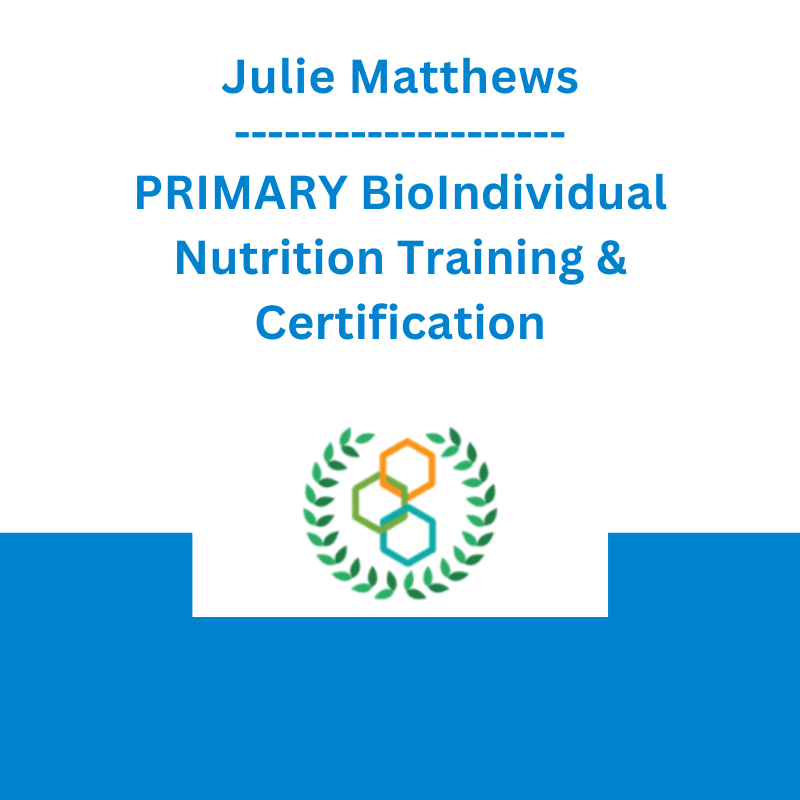








 The Daily Traders – Exclusive Trading Mentorship Group
The Daily Traders – Exclusive Trading Mentorship Group  Julie Stoian & Cathy Olson - Launch Gorgeous - Funnel Gorgeous Bundle
Julie Stoian & Cathy Olson - Launch Gorgeous - Funnel Gorgeous Bundle  Racing Workshop - Complete Online Package
Racing Workshop - Complete Online Package  SMB - Options Training
SMB - Options Training  George Fontanills & Tom Gentile - Optionetics Wealth Without Worry Course
George Fontanills & Tom Gentile - Optionetics Wealth Without Worry Course 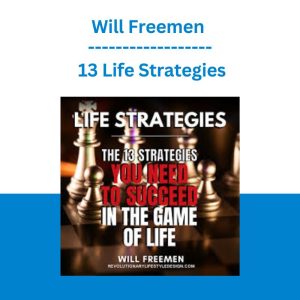 Will Freemen - 13 Life Strategies
Will Freemen - 13 Life Strategies  Akil Stokes & Jason Graystone - TierOneTrading - Trading Edge 2019
Akil Stokes & Jason Graystone - TierOneTrading - Trading Edge 2019  Simpler Trading - Bruce Marshall - The Options Defense Course
Simpler Trading - Bruce Marshall - The Options Defense Course  Toshko Raychev - Profit System + ITF Assistant
Toshko Raychev - Profit System + ITF Assistant  Erik Banks - Alternative Risk Transfer
Erik Banks - Alternative Risk Transfer  Chris Capre - Advanced Price Action Ongoing Training & Webinars
Chris Capre - Advanced Price Action Ongoing Training & Webinars  Ed Ponsi - Forex Trading
Ed Ponsi - Forex Trading  Fred Haug - Virtual Wholesaling Simplified
Fred Haug - Virtual Wholesaling Simplified  Emanuele Bonanni - My Trading Way
Emanuele Bonanni - My Trading Way  Matthew Kratter - Trader University
Matthew Kratter - Trader University  Atlas API Training - API 570 Exam Prep Training Course
Atlas API Training - API 570 Exam Prep Training Course 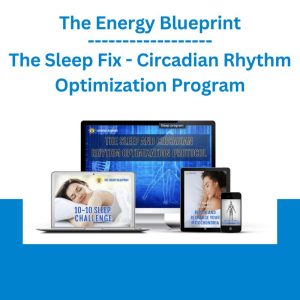 The Energy Blueprint - The Sleep Fix - Circadian Rhythm Optimization Program
The Energy Blueprint - The Sleep Fix - Circadian Rhythm Optimization Program  Greg Loehr - Advanced Option Trading With Broken Wing Butterflies
Greg Loehr - Advanced Option Trading With Broken Wing Butterflies 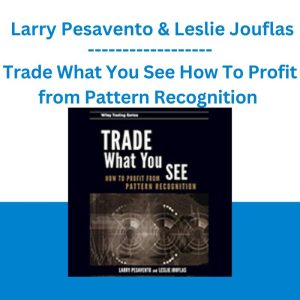 Trade What You See How To Profit from Pattern Recognition - Larry Pesavento & Leslie Jouflas
Trade What You See How To Profit from Pattern Recognition - Larry Pesavento & Leslie Jouflas  George Fontanills & Tom Gentile - Optionetics 6 DVD Series Home Study Course (Digital Download)
George Fontanills & Tom Gentile - Optionetics 6 DVD Series Home Study Course (Digital Download)  Money Miracle - George Angell - Use Other Peoples Money To Make You Rich
Money Miracle - George Angell - Use Other Peoples Money To Make You Rich 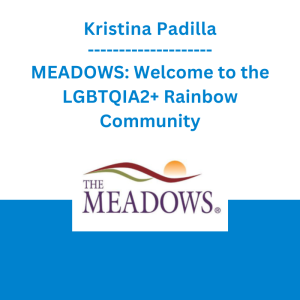 Kristina Padilla - MEADOWS: Welcome to the LGBTQIA2+ Rainbow Community: What you didn't know and how to become an Ally to your clients
Kristina Padilla - MEADOWS: Welcome to the LGBTQIA2+ Rainbow Community: What you didn't know and how to become an Ally to your clients  Oliver Velez - Essential Strategy Of Trade For Life
Oliver Velez - Essential Strategy Of Trade For Life  Laura Pennington - Guide to Killing It On Upwork as a New Freelancer
Laura Pennington - Guide to Killing It On Upwork as a New Freelancer 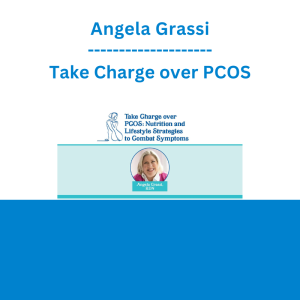 Angela Grassi - Take Charge over PCOS: Nutrition and Lifestyle Strategies to Combat Symptoms
Angela Grassi - Take Charge over PCOS: Nutrition and Lifestyle Strategies to Combat Symptoms